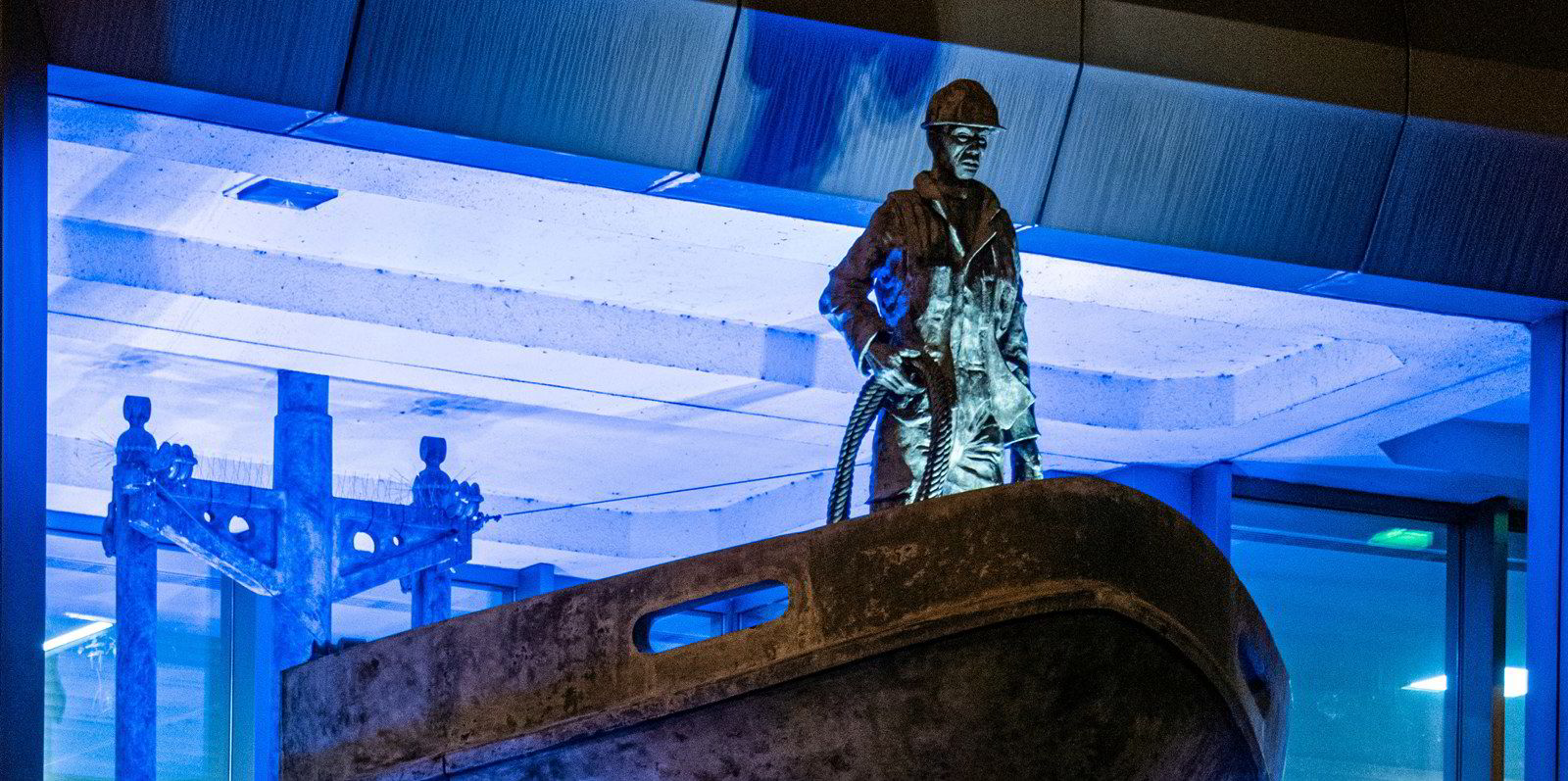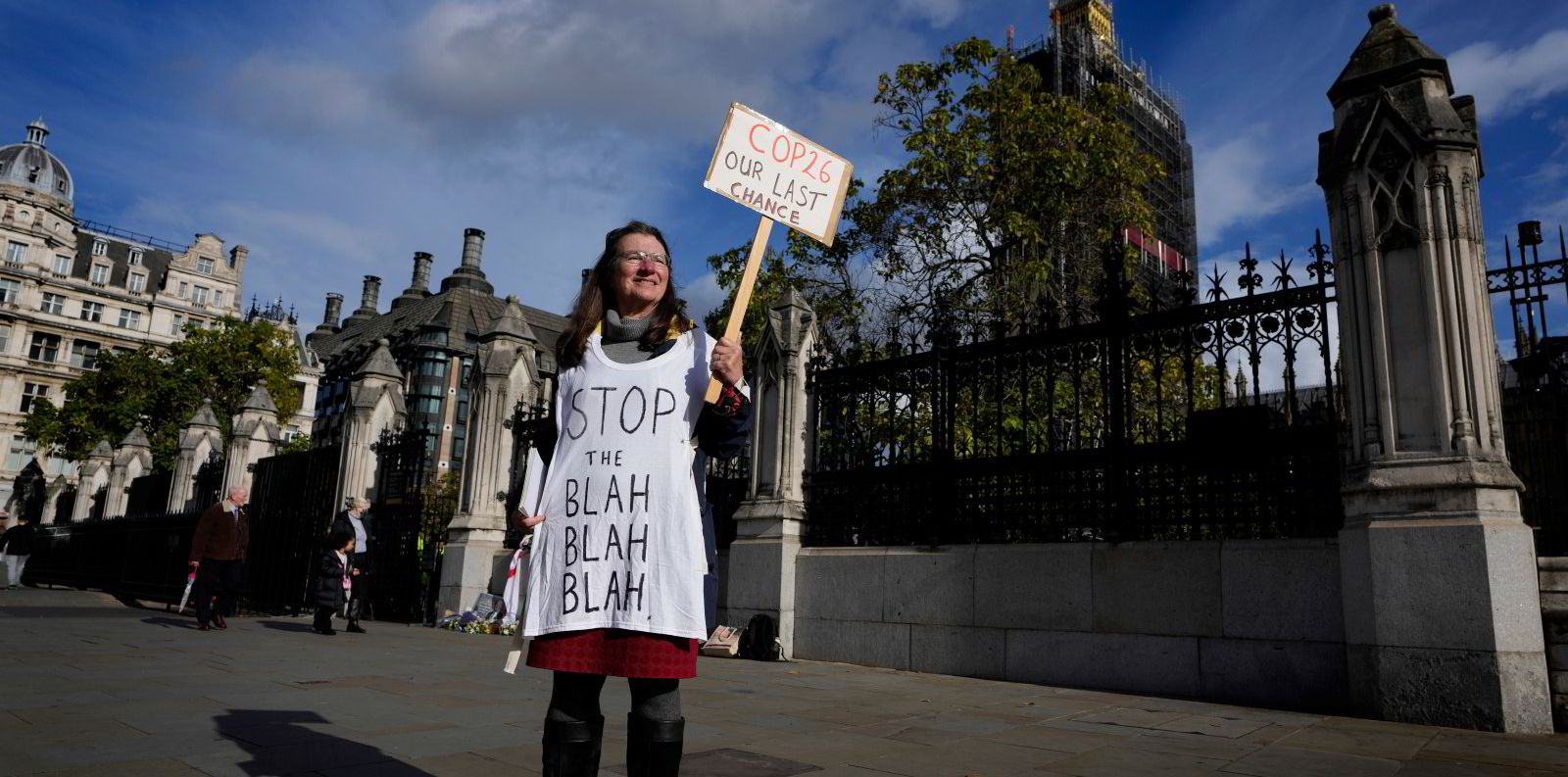Mounting pressure on the maritime world to act with appropriate urgency over the climate crisis is building with an unprecedented series of events in the coming days.
The 26th United Nations’ climate summit will start on 31 October in Glasgow, Scotland, with host Alok Sharma insisting this is the last chance to avert “catastrophe”.
The maritime world will hold its own "Shaping the Future of Shipping" as the industry’s flagship event at COP26 on 6 November.
Then, on 22 November, the International Maritime Organization’s key Marine Environment Protection Committee meets to make actionable policy.
There are already signs of new thinking in the maritime world. Japan has come out in favour of bringing forward IMO net-zero emission targets for shipping to 2050.
There have also been purposeful suggestions from the Maersk Mc-Kinney Moller Center for Zero Carbon Shipping on how to meet those tougher goals.
Italian classification society Rina has also raised the dramatic suggestion that there is a need to adopt more nuclear-powered ships. I don’t think this is the answer myself, but Rina chief executive Ugo Salerno is right to ask the industry to think bold.
The move by normally-conservative Japan is particularly significant. It sets another of the key shipping nations alongside the US, UK and European Union against the current slow-motion IMO target of just halving CO2 pollution by the middle of this century.
There is still no guarantee that the IMO will change its targets even with these heavyweights ranged against it — or that there can be any guarantee that net zero can be achieved, which ever date is used.
But I am convinced that without tough new targets, the industry will backslide into avoidance and prevarication, leaving it with pariah status when it has a chance to build a gold-plated (or should that be green-plated) future.
Humans are generally assumed to crave routine and dislike change.
But Covid-19 has shown us that in a crisis situation, governments, citizens and industries can abandon old ways and do things quite differently.
Who would ever have believed three years ago amid continuing austerity and public-spending cuts that Western governments would be paying people to stay at home and not go to work in 2020?
Meanwhile, Denmark’s Maersk Mc-Kinney Moller Center is right in its recent report claiming that there must be firm global regulations — starting with a flat carbon levy.
That is the only way of realistically closing the gap between fossil fuels and new low-carbon fuels which are yet to be available at scale.

It should not need to be emphasised again, but it does. Fossil fuels are currently cheap because they do not pay for the cost of the damage they do to the environment.
So “cheap” is not really the right description for diesel bunkers, and alternative fuels — such as ammonia, hydrogen and even nuclear — can cost the planet so much less as long as they are manufactured in the right way.
The provision of maritime fuels is not something the shipping world guarantee either of course. This is largely an issue in the hands of policymakers and energy companies.
I am convinced that without tough new targets, the industry will backslide into avoidance and prevarication, leaving it with pariah status when it has a chance to build a gold-plated (or should that be green-plated) future
But while the maritime world wrestles with the details of this energy transition, it is good to remember that decarbonisation also holds opportunities.
Rystad Energy estimates that demand for wind power globally will be four to five times higher by 2030 than it is today.
Singapore shipping analysts say 22 drillships or rigs already have been repurposed from oil exploration to wind farm construction.
Under the protectionist Jones Act, wind turbine installation vessels to facilitate the US offshore wind build-out are being constructed domestically.
Critics say this raises the cost but creating jobs and a supply chain in the US can break down any public opposition — stoked by the Republican Party — to the energy transition.
President Joe Biden has set a goal of producing 30 GW of offshore wind power in the US by 2030, triggering the potential for 38 new vessels of various kinds, says classification society ABS.
Biden and other COP26 delegates must surely do the right thing to bind together to move toward a tough new treaty to avoid catastrophe.
Shipping can just heed American bard Bob Dylan’s advice: “You don’t need a weatherman to know which way the wind blows.”





